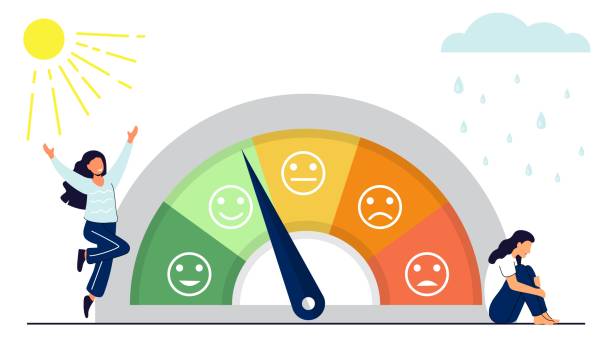In today’s fast-paced world, managing stress effectively is crucial for maintaining a balanced and fulfilling life. One of the most effective ways to reduce stress is by establishing structured morning and night routines. These routines help set the tone for the day and promote relaxation at night, leading to improved mental and physical well-being. This guide outlines the essential morning and night habits that can significantly enhance your quality of life.
The Importance of Daily Routines in Stress Management
A well-structured routine provides stability and predictability, which are key factors in stress reduction. Routines create a sense of control, regulate the body’s internal clock, and enhance overall productivity. By incorporating mindful practices into your mornings and evenings, you can improve emotional resilience, cognitive function, and physical health.
Optimizing Your Morning Routine for a Productive Day

A strong morning routine sets the foundation for the rest of the day. By engaging in positive habits early in the day, you can boost energy levels, enhance focus, and improve overall mood.
1. Wake Up at a Consistent Time
Maintaining a consistent wake-up time helps regulate your body’s circadian rhythm. This promotes better sleep quality and improves overall alertness throughout the day. Avoid the temptation to hit the snooze button, as it can disrupt your natural sleep cycles and leave you feeling groggy.
2. Practice Mindfulness or Meditation
Starting the day with mindfulness or meditation can help clear the mind, reduce anxiety, and enhance focus. Even a few minutes of deep breathing exercises can improve mental clarity and emotional stability. Consider guided meditation apps or simple breathing techniques to center yourself before diving into daily tasks.
3. Engage in Physical Activity
Exercise in the morning boosts endorphins, which are natural stress relievers. Activities such as yoga, stretching, or a brisk walk can enhance mood and improve physical health. Even light movement can jumpstart metabolism and increase alertness, setting a positive tone for the day.
4. Eat a Nutrient-Dense Breakfast
A well-balanced breakfast stabilizes blood sugar levels and provides sustained energy. Foods rich in protein, healthy fats, and fiber contribute to improved cognitive function and reduced stress. Avoid sugary cereals and opt for whole foods such as eggs, oatmeal, fruits, and nuts.
5. Limit Digital Distractions
Avoid immediately checking emails or social media upon waking. Instead, start your day with a positive mindset by journaling, reading, or planning your goals for the day. Digital detoxing in the morning allows for a more intentional and stress-free start to the day.
6. Hydrate First Thing in the Morning
Drinking a glass of water upon waking helps rehydrate the body and kickstarts metabolism. Dehydration can lead to fatigue, headaches, and decreased cognitive function, so making hydration a priority is essential.
Creating a Calming Night Routine for Better Sleep

An effective night routine helps signal the body that it is time to relax and unwind, leading to restful sleep and reduced stress levels.
1. Establish a Regular Bedtime
A consistent bedtime helps regulate sleep patterns, making it easier to fall and stay asleep. Aim for at least 7-9 hours of quality rest each night. A structured bedtime also reduces overthinking and nighttime anxiety.
2. Design a Sleep-Friendly Environment
Create a relaxing atmosphere by keeping your bedroom cool, dark, and quiet. Consider using blackout curtains, aromatherapy, or a white noise machine to enhance sleep quality. Investing in a good-quality mattress and pillows also contributes to better rest.
3. Unwind with Gentle Stretching or Yoga
Light stretching or yoga before bed helps release muscle tension and promotes relaxation, making it easier to transition into a restful sleep state. Yoga poses such as child’s pose, forward bend, and legs-up-the-wall pose can be particularly soothing.
4. Reduce Caffeine and Heavy Meals
Avoid caffeine and large meals close to bedtime, as they can disrupt sleep. Instead, opt for a light, sleep-friendly snack if necessary. Herbal teas like chamomile or peppermint can also support relaxation.
5. Disconnect from Screens
Reducing screen exposure at least an hour before bed helps minimize blue light interference, which can disrupt melatonin production. Replace screen time with reading, journaling, or listening to calming music.
6. Practice Gratitude Journaling
Writing down a few positive thoughts or things you are grateful for at the end of the day can promote a sense of peace and fulfillment. This practice shifts focus from stressors to moments of appreciation, helping to ease the mind before sleep.
Additional Stress-Reduction Techniques to Enhance Daily Routines

Beyond structured routines, incorporating additional stress-management techniques can enhance overall well-being. Consider integrating the following:
1. Mindfulness-Based Stress Reduction (MBSR)
MBSR techniques, such as meditation and mindful breathing, help cultivate present-moment awareness and reduce stress levels. This practice can be integrated into morning or night routines for greater impact.
2. Journaling for Mental Clarity
Writing down thoughts and emotions before bed can help process feelings, reduce anxiety, and improve mental well-being. Keeping a journal also allows for self-reflection and goal tracking.
3. Deep Breathing Exercises
Practicing deep breathing techniques, such as diaphragmatic breathing or the 4-7-8 method, can activate the body’s relaxation response and lower cortisol levels.
4. Spending Time in Nature
Taking a morning or evening walk in a natural setting can significantly lower stress levels. Exposure to fresh air and natural light helps regulate circadian rhythms, while nature itself has a calming effect on the mind.
5. Practicing Self-Care
Prioritizing self-care activities such as reading, skincare, or listening to calming music can provide a sense of relaxation and personal well-being.
Customizing Routines for Maximum Effectiveness
Each individual’s routine should align with their lifestyle and preferences. Experimenting with different techniques can help identify what works best. The key to success lies in consistency and adaptability, ensuring that routines remain supportive rather than rigid.
Conclusion
Establishing intentional morning and night routines plays a crucial role in stress management and overall well-being. By incorporating mindfulness, physical activity, and relaxation techniques, you can create a structured yet flexible routine that enhances mental clarity, emotional stability, and physical health.
For further insights on stress management, explore our in-depth guides:
- Stress vs. Anxiety: Understanding the Key Differences
- Effective Stress Management Techniques for a Balanced Life
- The Effect of Stress on the Brain and Ways to Manage It
For more expert tips on stress reduction and mental wellness, visit Venzec. Our platform offers comprehensive resources to help you achieve a balanced and stress-free life.









